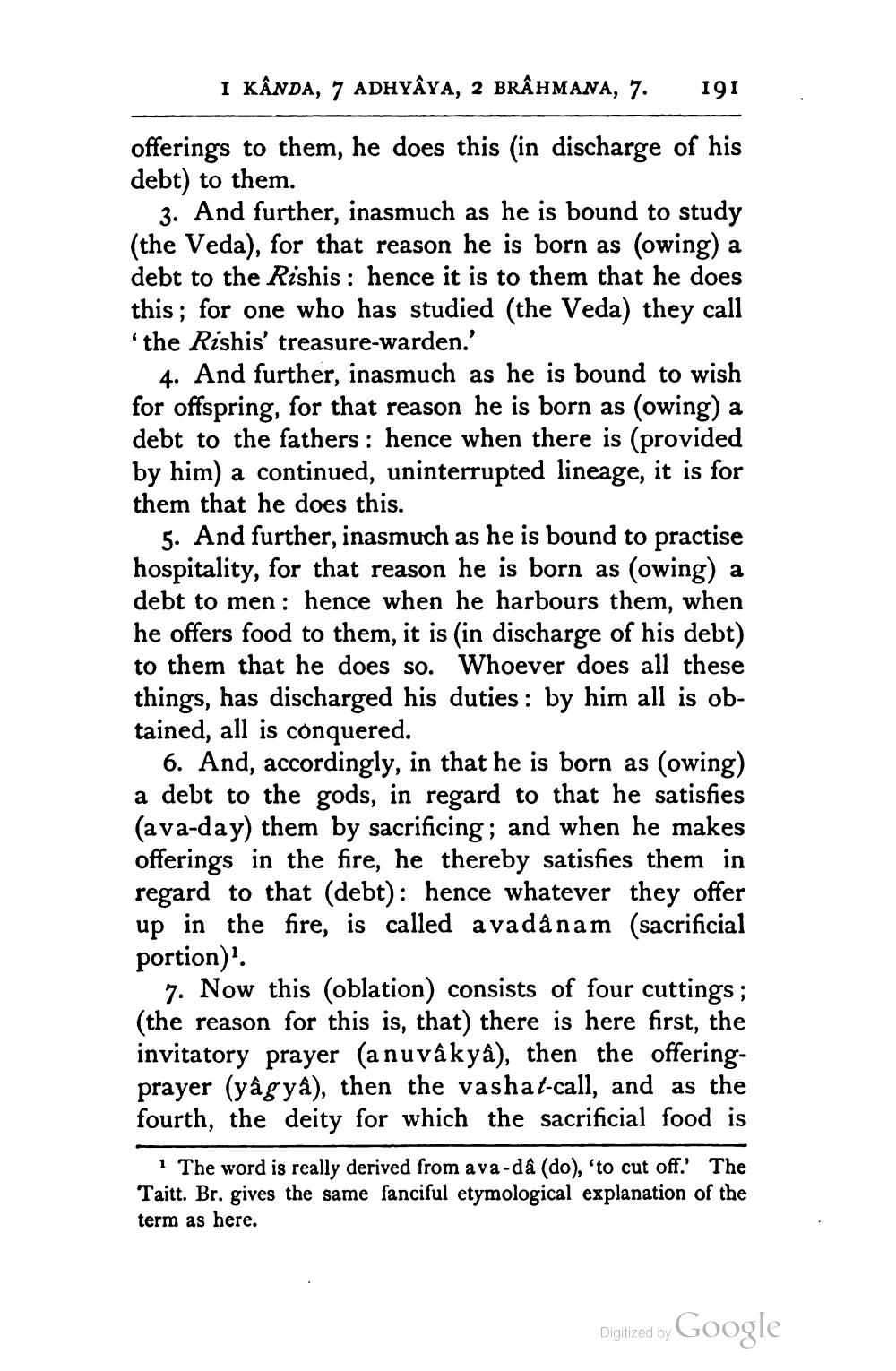________________
I KÂNDA, 7 ADHYÂYA, 2 BRÂHMANA, 7.
191
offerings to them, he does this in discharge of his debt) to them.
3. And further, inasmuch as he is bound to study (the Veda), for that reason he is born as (owing) a debt to the Rishis: hence it is to them that he does this; for one who has studied (the Veda) they call 'the Rishis' treasure-warden.'
4. And further, inasmuch as he is bound to wish for offspring, for that reason he is born as (owing) a debt to the fathers : hence when there is (provided by him) a continued, uninterrupted lineage, it is for them that he does this.
5. And further, inasmuch as he is bound to practise hospitality, for that reason he is born as (owing) a debt to men: hence when he harbours them, when he offers food to them, it is (in discharge of his debt) to them that he does so. Whoever does all these things, has discharged his duties: by him all is obtained, all is conquered.
6. And, accordingly, in that he is born as (owing) a debt to the gods, in regard to that he satisfies (ava-day) them by sacrificing; and when he makes offerings in the fire, he thereby satisfies them in regard to that (debt): hence whatever they offer up in the fire, is called avadanam (sacrificial portion)?.
7. Now this (oblation) consists of four cuttings; (the reason for this is, that) there is here first, the invitatory prayer (a nuvâkyà), then the offeringprayer (yâgyà), then the vashat-call, and as the fourth, the deity for which the sacrificial food is
1 The word is really derived from a va-da (do), 'to cut off. The Taitt. Br. gives the same fanciful etymological explanation of the term as here.
Digitized by Google




